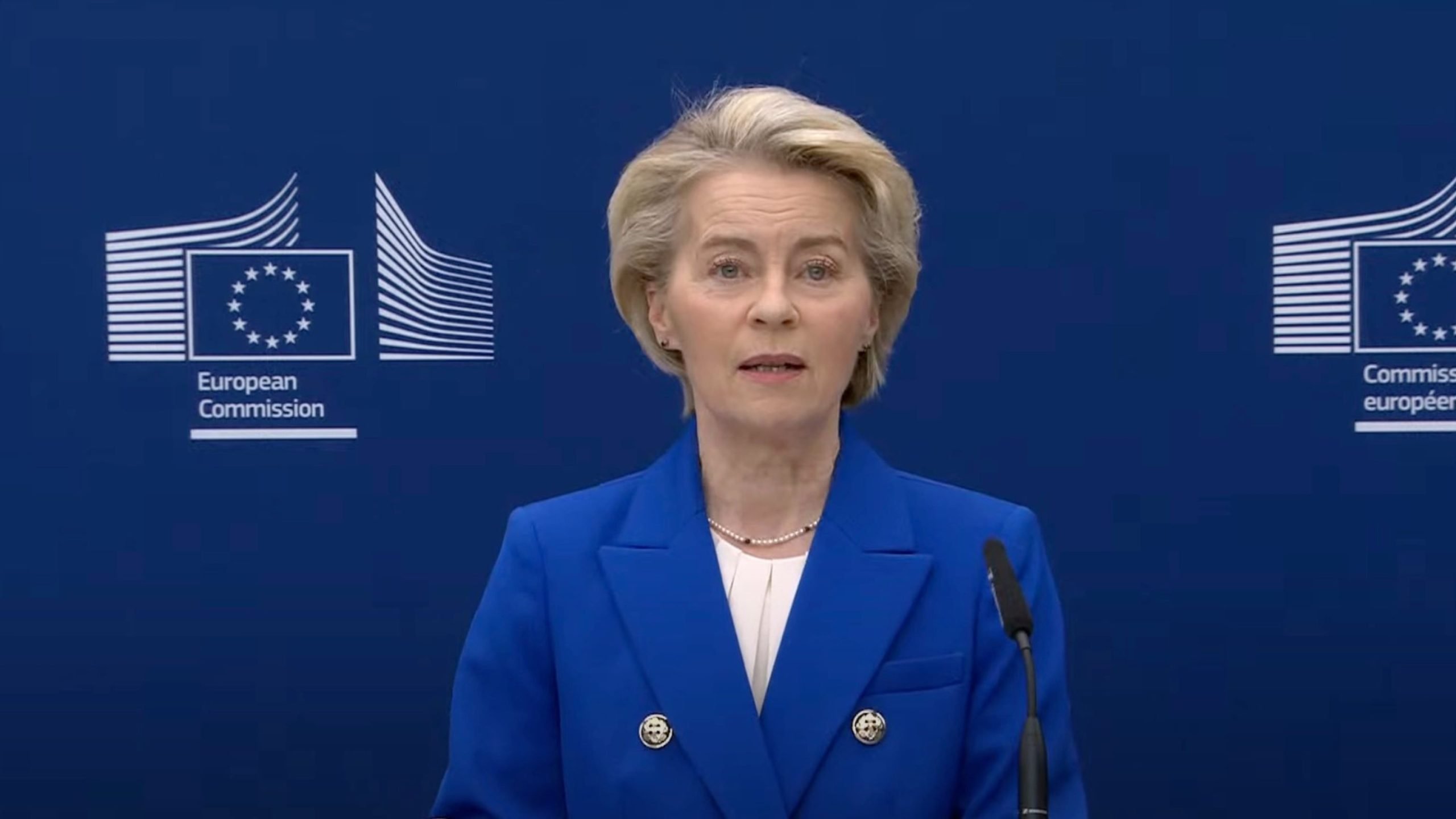EU Commission President Ursula von der Leyen has fired another shot across the bows of major US social media companies – such as X, Meta, and Apple – but also China’s TikTok, stating that the bloc would proceed with enforcing its online rules, “without fear.”
Among those rules are the Digital Services Act (DSA) – long regarded by critics as a censorship law – as well as the AI Act and the Digital Markets Act (DMA).
The reason the EU would feel any fear to begin with – prompting Von der Leyen to offer assurances that investigations against the tech companies will continue to be pursued – is the position the Trump administration has taken.
And it is that these EU’s rules represent tools of censorship that also stand in the way of innovation in Europe.
In a statement to Politico, Von der Leyen claims that the EU applies the rules “fairly, proportionally, and without bias,” adding, “We don’t care where a company’s from and who’s running it. We care about protecting people.”
But the treatment of X (and to a lesser degree Meta) compared to others under investigation, seems to tell a different story. Elon Musk’s association with the US administration has resulted in various forms of pressure and vilification of himself and X in the EU, which is reportedly ready to fine Musk’s company with one billion euros.
X is accused of non-compliance with the DSA, for not censoring content the EU finds to be “disinformation,” “harmful,” or “unlawful.”
Meanwhile, many other companies are investigated for alleged breaches of the DMA and are looking at fines that are significantly lower.
Observers interpret this to demonstrate political bias – despite Von der Leyen taking the trouble to declare that cannot possibly be the case. But the impression to the contrary is further amplified by the fact Meta could get a treatment similar to X.
And that comes after Mark Zuckerberg first publicly admitted that the previous US administration (the one heavily preferred to the current one in Brussels) pressured Meta to censor via third parties like “fact-checkers.”
This ultimately led to the giant dropping its “fact-checking” program in the US – still to the chagrin of the EU.
Also sitting at odds with declarations about the “fair and unbiased” approach to everyone is the recently announced Democracy Shield initiative, allegedly needed to counter “disinformation,” with X and Meta mentioned by name.








